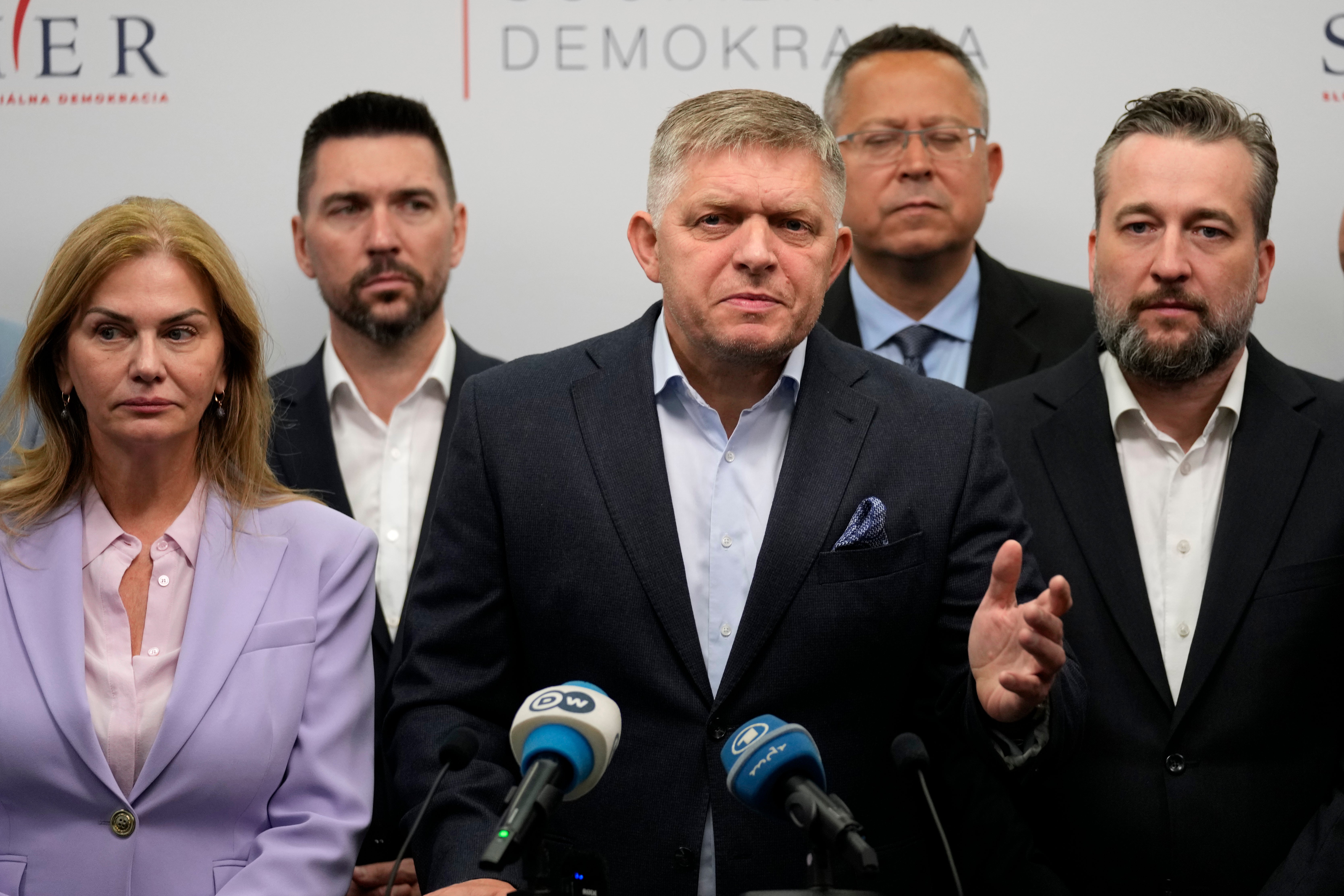Slovakia's president asks a populist ex-premier to form government after winning early election
Slovakia’s president has asked the leader of the winning party in the country’s parliamentary election to try to form a coalition government

Slovakia’s president on Monday asked the leader of the winning party in the country’s parliamentary election to try to form a coalition government.
Populist former prime minister Robert Fico and his leftist Smer, or Direction, party captured 22.9% of the vote on Saturday. It will have 42 seats in the 150-seat Parliament.
If he succeeds, Fico, 59, will become prime minister for the fourth time.
In a televised address to the nation Monday, President Zuzana Caputova stressed that the new government would have to be "a government which will serve all citizens.”
Fico has repeatedly attacked the liberal president, accusing her of being an American agent and serving foreign interests. Caputova has been suing him for that.
Fico campaigned on a pro-Russian and anti-American message.
The election was a test for the small eastern European country’s support for neighboring Ukraine in its war with Russia. Fico vowed to withdraw Slovakia’s military support for Ukraine, and his victory could further strain the fragile unity in the European Union and NATO.
Fico needs to find coalition partners to rule with a parliamentary majority.
The left-wing Hlas (Voice) party, led by Fico’s former deputy in Smer, Peter Pellegrini, came in third with 14.7% (27 seats). Pellegrini parted ways with Fico after the scandal-tainted Smer lost the previous election in 2020, but their possible reunion would boost Fico’s chances to form a government.
Other potential coalition partners include, the ultranationalist Slovak National Party, a clear pro-Russian group, that received won 10 seats and the Conservative Christion Democrats with 12 seats.
A liberal, pro-Western newcomer, the Progressive Slovakia party, took second place in the election with 18% of the votes, or 32 seats. Its leader, Michal Simecka, said he would like try to form a governing coalition if Fico fails.
Fico’s critics worry that his return to power could lead Slovakia to abandon its course in other ways, following the path of Hungary under Prime Minister Viktor Orbán and to a lesser extent of Poland under the Law and Justice party.
Bookmark popover
Removed from bookmarks